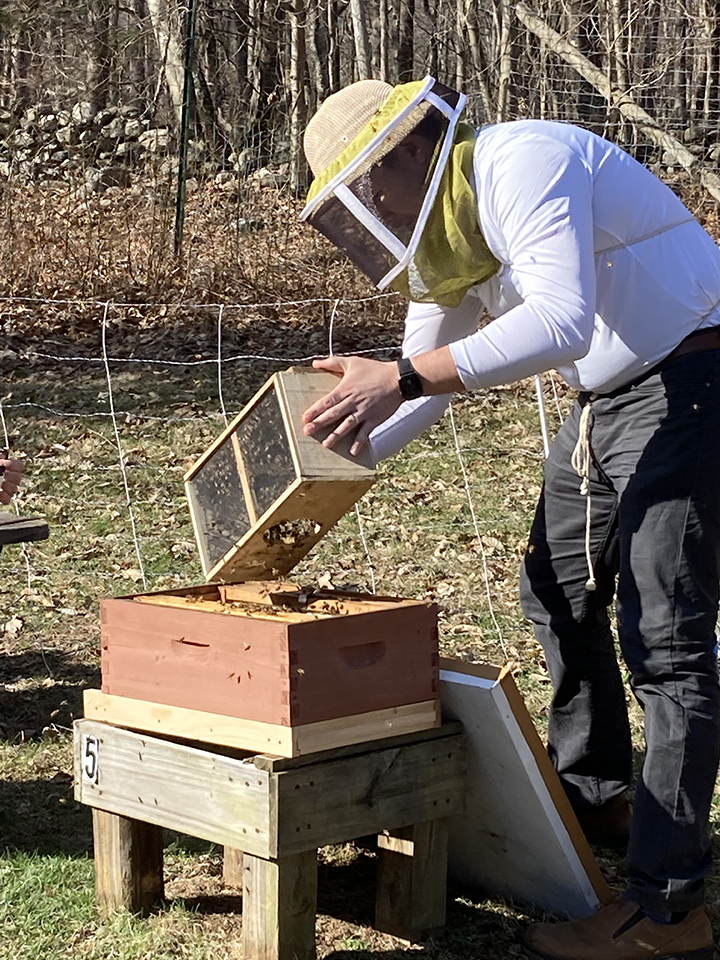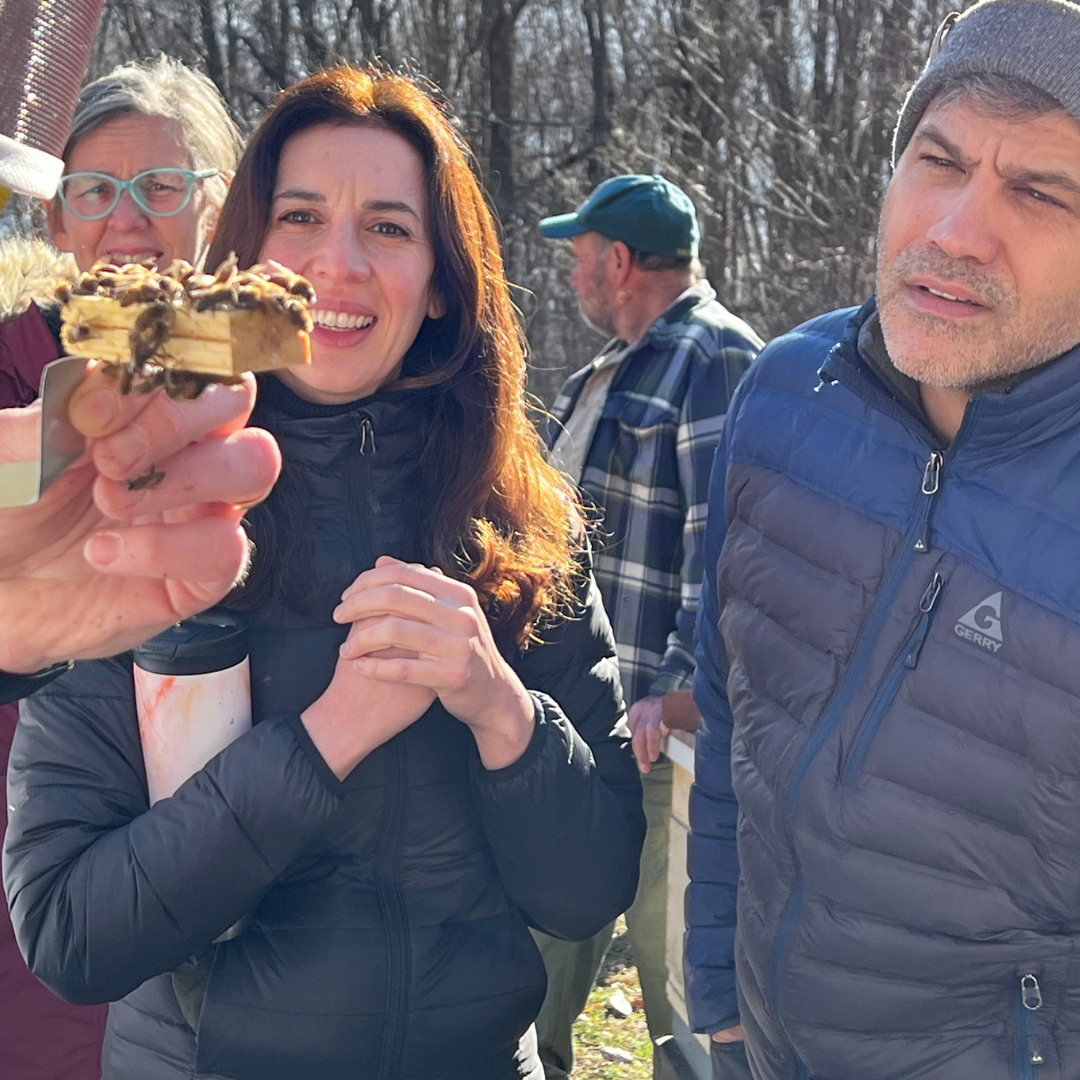 Bees are highly misunderstood little things. Often the subject of nuisance at summer barbecues or a sweet add-in for your evening cup of tea—bees are extremely vital to our ecosystem. Beekeeping has become all the buzz as people look for ways to engage with the outside world in a way that not only helps the environment, but their own mental well-being.
Bees are highly misunderstood little things. Often the subject of nuisance at summer barbecues or a sweet add-in for your evening cup of tea—bees are extremely vital to our ecosystem. Beekeeping has become all the buzz as people look for ways to engage with the outside world in a way that not only helps the environment, but their own mental well-being.
One local non-profit fueling beekeeping’s widening appeal is The Back Yard Beekeepers Association (BYBA) in Weston, whose hive of budding hobbyists and seasoned pollinators has grown into one of the nation’s largest regional clubs for beekeeping. Its president, Ben Haase, petitions its members to not only come together as a community at the Bee Yards in Easton and Newtown, but also to spread little seeds of inspiration wherever they go—as the honeybees they tend to would appreciate.
“I think a lot of people want to find a way to help pollinators as we are continuously learning more about climate change and the stressors on honeybees and other pollinators,” says Haase. “Beekeeping is a very tangible way to have an impact by encouraging people to be more pollinator-friendly in their day-to-day life by planting native flowers, allowing lawns to go natural, and avoiding pesticides.”
The Back Yard Beekeepers Association was formed in 1994 by Ed Weiss, author of one of the best beginner beekeepers books, The Queen and I, and has since cultivated over 350+ active members. “Ed helped pull together a great group of beekeepers and hobbyists to seed our ranks and we’ve flourished ever since,” says Haase. “BYBA has been a wonderful group to be a part of – a second family – with a common passion. Over the years, we’ve had wonderful involvement in the community and the honor to have had past presidents including Howland Blackiston, author of Beekeeping for Dummies, C. Marina Marchese, author of The Honey Connoisseur, and now me.”
 BYBA’s Bee School presents the perfect introduction for beginners of all ages or a refresher for seasoned beekeepers to improve on their skills. Class instruction includes subjects ranging from how to assemble and tend to a hive and colony to safety issues. “New Bees” meet once a month to freely ask questions and get advice. They also have the opportunity to participate in numerous workshops year-round— including hive inspections, queen rearing and honeybee health.
BYBA’s Bee School presents the perfect introduction for beginners of all ages or a refresher for seasoned beekeepers to improve on their skills. Class instruction includes subjects ranging from how to assemble and tend to a hive and colony to safety issues. “New Bees” meet once a month to freely ask questions and get advice. They also have the opportunity to participate in numerous workshops year-round— including hive inspections, queen rearing and honeybee health.
BYBA also bee-lieves in fostering passion for beekeeping for younger members. The Wannabees group care for their own hive at the Bee Yard in Easton and meet monthly with beekeeping mentors and members of the local beekeeping community. There, they gain knowledge of proper beekeeping techniques, environmental effects, regional habitat, as well as the collection and use of honey and other hive products.
“By joining the BYBA, people gain access to a wealth of knowledge and experience working with bees,” says Haase. “Members have access to our own library of books related to bees, honey and beekeeping, as well as a back catalog of workshop and presentation videos.”
Studies have shown that beekeeping can help with anxiety and other mental health struggles. “Working with the honeybees can be surprisingly relaxing,” says Haase. “When opening a hive to check on the bees, I put my focus on the sights, sounds and smells of the hive. I can forget about all the other distractions in my life and just “bee” outdoors with my honeybees. As a bonus, I also get some amazing honey!”
For more information about all “buzzworthy” events offered by BYBA go to backyardbeekeepers.com. •